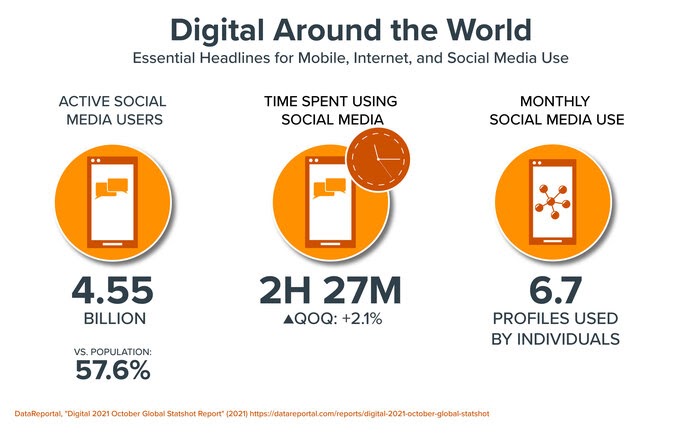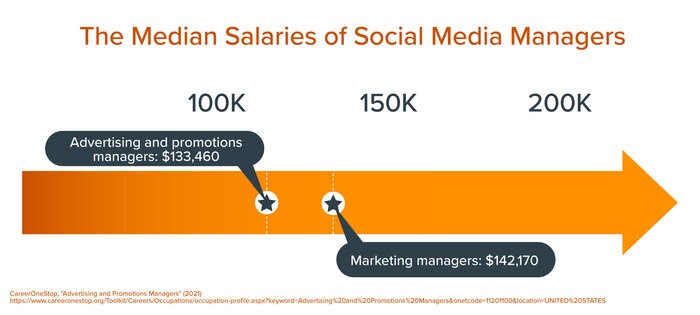Become Proficient in Various Social Media Platforms
Social media managers are adept not only at using social media but also at extracting the most benefit from each platform. Each site is an ecosystem with its own demographics, user preferences, shorthand language, and posting styles. Good managers tailor their content and tone to each platform.
For instance, according to Pew Research, YouTube was the most-used social media platform among U.S. adults in 2021 (81 percent). Meanwhile, 69 percent use Facebook, and 40 percent are on Instagram. Those demographics vary by age, gender, race, income, and other characteristics. Seventy-one percent of adults 18-49 use Instagram, Pew Research found, but only 13 percent of those 65 and older are on the platform. Meanwhile, TikTok passed 1 billion worldwide users in fall 2021, reaching the milestone faster than Facebook.
Savvy social media managers understand where their target audience devotes most of its time and attention, and they concentrate content strategies on those platforms while maintaining a presence on others. Being fluent in each platform’s rhythm and attitude is a prerequisite of the position.
Build a Personal Social Media Presence
Companies interested in hiring you to run their social media certainly will want to know how you run yours. So make sure your accounts showcase your craft.
Grow your accounts and personal brand by posting consistently, sharing unique content, and engaging with followers. Be professional but also true to your personality, and adopt social-media best practices.
Gain Work Experience in Social Media
Before-the-job training works well for aspiring social media managers. As you get started exploring your options, consider volunteering to run social media for organizations short on time, staff, or resources. Local small businesses and nonprofits might want to increase their presence on Facebook or create a YouTube channel to highlight their work.
Youth sports leagues and clubs could also benefit from sharing their achievements online. Even a consistently updated Twitter account is meaningful for many organizations.
If you’re looking to break into social media, this experience can be highly valuable. You’ll learn about managing accounts, successful posting strategies, and methods to monitor your work while building practical experience and a digital portfolio to show prospective employers.
Become Familiar With the Industry You’re Pursuing
Organizations have different social media requirements. Some demand a formal tone highlighting their industry expertise and experience while others want to be lighter and more entertaining. Still others seek an edge, perhaps with some self-deprecation — every brand will be unique.
Before interviewing with a company, learn about its products and services, its market and customer base, and its public persona. Get to know how the company resonates with the public and how you can enhance its presence. Equip yourself to lead a company’s public-facing social media by becoming ingrained in its story.
Pursue a Job in Social Media
As you might imagine, social media platforms are the perfect place to pursue a career in social media. According to The Muse, 92 percent of companies use social media to hire — so put your expertise to use.
Follow the organizations, companies, and brands that you admire and for which you want to work. Reach out to them through their channels with a pitch and portfolio link. Companies often post job openings through their social media accounts, and many use LinkedIn to advertise jobs and vet candidates.
Encourage conversations by letting recruiters and managers know that you’re “open for networking.” Take advantage of the career service programs that your school offers. By attending a digital marketing bootcamp, you’ll have access to an advisor, career coaching, and a professional engagement network to keep you competitive in the ever-evolving social media landscape.
Above all, be positive. Your next post could be the one that leads to a career in social media marketing.

 Live Chat
Live Chat


